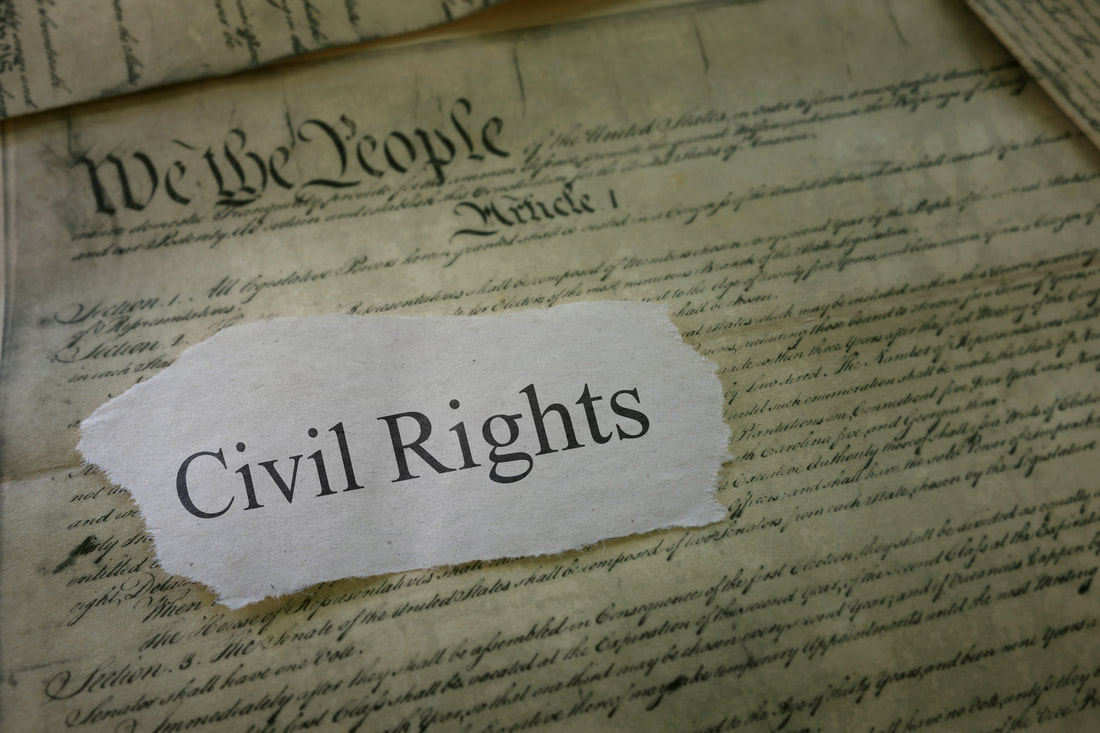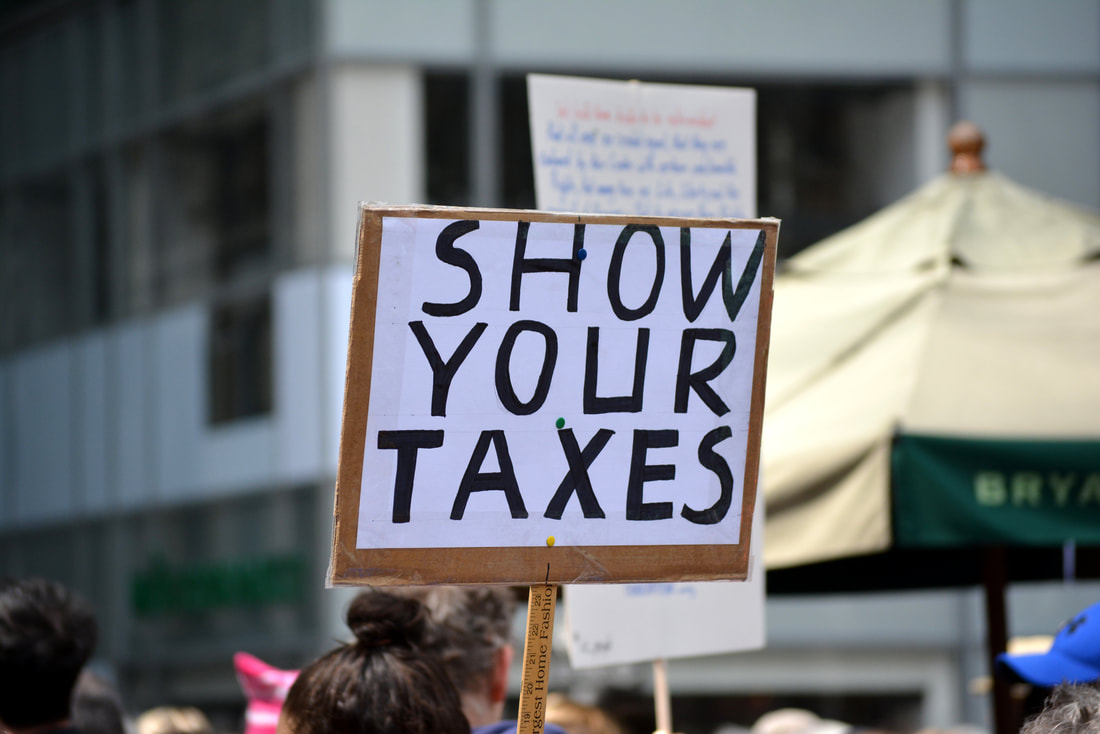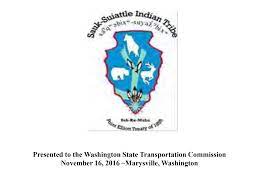|
Los Angeles cannabis regulators have urged a California federal judge to reject a Michigan man's effort to halt the city's upcoming lottery for marijuana retail licenses, saying the challenger and his company met none of the criteria to justify such an order.
Specifically, Los Angeles said that Michigander Kenneth Gay and his company Variscite Inc. were unlikely to succeed on the merits, couldn't show how letting the lottery proceed would irreparably harm them, and sought an order that would hinder the public interest. The plaintiffs "are unlikely to suffer irreparable harm because they are pursuing a commercial cannabis license for the purpose of earning a profit, which can be addressed through monetary damages," the city wrote in a Friday opposition filing. Gay said in his Nov. 30 complaint that the methods used by Los Angeles' Department of Cannabis Regulation to reward storefront retail licenses to social equity applicants violate the dormant commerce clause, a constitutional doctrine that bars policies which favor in-state residents. He sought a temporary restraining order halting a lottery which is scheduled for Dec. 8. But the city said Friday that the dormant commerce clause had not been shown to apply to cannabis regulations in the Ninth Circuit, where California is, and said that the doctrine applies to federally regulated interstate markets — which necessarily excludes cannabis, a federally illegal substance. "The general public would not benefit from an injunction because the primary purpose of the Dormant Commerce Clause does not apply to federally illegal cannabis markets," the city wrote. Los Angeles told the court that the balance of equities tipped heavily against granting Gay a temporary restraining order because it would effectively harm the other 508 license applicants who are in the running for the lottery. "Plaintiffs have known of the Verification Criteria for months or potentially years, and yet waited until the last possible minute before the … lottery to file suit and request this [temporary restraining order]," the city said in its filing. "Their inexplicable delay militates heavily against the issuance of a[n order]." The city also argued that Gay did not have standing to challenge the city's social equity program since he failed to produce documentation that would qualify him for the lottery. Gay previously brought a similar lawsuit in New York federal court, saying the state cannabis regulator's plan for doling out the first round of retail licenses was a dormant commerce clause violation since it was designed to award licenses to those with a New York cannabis conviction or close family members of someone with such a conviction. As a result of the legal challenge, a New York federal judge in November agreed to block Empire State cannabis regulators from issuing the first marijuana retail licenses for five geographic regions across the state. In the Los Angeles dispute, the city said if the court does grant an injunction, it should be narrowly tailored to force Gay's inclusion in the lottery — rather than shutting down the lottery for the hundreds of other applicants. Gay also has a similar lawsuit pending against cannabis regulators in Sacramento, California, which is headed for an appeal in the Ninth Circuit. Gay and Variscite are represented by Christian Kernkamp of Kernkamp Law APC. The Los Angeles parties are represented by Patrick Hagan, Taylor C. Wagniere and Kabir Chopra of the city attorney's office. The case is Variscite Inc. et al. v. City of Los Angeles et al., case no. 2:22-cv-08685, in the U.S. District Court for the Central District of California.
0 Comments
The U.S. Food and Drug Administration's food program has no clear leader and must act more boldly with its budget, data sharing, and use of its mandatory recall authority, according to a report that the agency commissioned following the infant formula shortage earlier this year. The Reagan-Udall Foundation's evaluation of the agency's Human Food Program, which was released Monday, described a lack of leadership resulting in part from a lack of clarity as to the roles of the program's Office of Food Policy and Response and the Center for Food Safety and Applied Nutrition. "There is no clear Human Foods Program leader or decision-maker, outside of the [FDA] commissioner," the report says. "Although the missions of CFSAN and OFPR have differences on paper, staff are often left wondering which program is responsible for decision-making. … A governance board was established in 2014 (and updated in 2019) to address this need for coordinated decision-making," the report continued. "However, this concept has not effectively addressed the structural challenges." FDA Commissioner Robert Califf announced in July that the agency was retaining the Reagan-Udall Foundation, a nonprofit organization created by Congress to aid the FDA's mission to assess the food office, in addition to the Office of Regulatory Affairs. The FDA's handling of an Abbott plant under investigation for bacterial contamination linked to a national shortage of infant formula drew sharp rebukes from lawmakers during a May hearing. The lawmakers said it was "unconscionable" that it took the agency months to inspect the plant despite an October 2021 whistleblower report about its conditions. The FDA started investigating the key facility on Feb. 17, following reports of infant illnesses after consuming the formula. While the country's food supply is safe, Califf said in July, the FDA's food program has been stressed by increasingly diverse and complex supply chain and food issues. Monday's report came in response to this concern. Califf announced Monday that he would be making a decision as to the future of the Human Food Program after consulting stakeholders and forming a group of agency leaders to help him figure out how to "implement and operationalize" the report's findings. "I expect this leadership group to be bold and focused on the transformative opportunities ahead for the FDA's food program — by fully realizing the preventive vision laid out in the Food Safety Modernization Act, elevating the importance of nutrition given declining life expectancy in the U.S., due in large part to chronic diseases, strengthening our state partnerships, and embracing innovative food and agricultural technologies," he said. Monday's report included several areas in which the program should act more boldly in exercising its authority. "FDA should use its mandatory recall authority more frequently, recognizing that a process should be in place to assure that accommodations are made for life-sustaining products that are the only source of nutrition for certain populations (e.g., infant formula)," the report said. It also said the program should strengthen its implementation and use of its authority to collect user fees. It also needs to act more boldly with nutritional labeling and data sharing, the report said. "In addition to seeking new authority regarding data sharing and records access, FDA should explore applying existing authority that infant formula manufacturers must retain microbiological testing records — and that those records 'shall be made available ... for review and duplication upon request' by FDA — to require real time disclosure of final product testing results from infant formula manufacturers," the report said. President Joe Biden on Friday signed into law a bipartisan bill to expand researchers' access to marijuana in order to study its potential medical benefits, representing the first stand-alone federal cannabis reform measure to become law in more than 50 years. The legislation — the Medical Marijuana and Cannabidiol Research Expansion Act, or H.R. 8454 — was approved by the Senate on a voice vote in November following its passage in the House of Representatives on a 325-95 vote in July. Members of the Congressional Cannabis Caucus celebrated the signing, saying in a joint statement that the legislation's approval "marks a monumental step in remedying our federal cannabis laws." The statement, signed by Reps. Earl Blumenauer, D-Ore., Barbara Lee, D-Calif., Dave Joyce, R-Ohio, and Brian Mast, R-Fla., continued: "We celebrate the enactment of this critical and long-overdue legislation, and we know there is much more to do to remedy the ongoing harms of the failed war on drugs. Our caucus will continue working to reimagine the federal government's approach to cannabis and enact further reforms." The bill has the backing of advocates on both sides of the legalization question. Its passage was cheered by anti-legalization advocacy group Smart Approaches to Marijuana, or SAM, which said the bill marked a sensible step toward improving cannabis research without changing marijuana's status as a federally controlled substance. "SAM has always encouraged research on marijuana and has said for years that if marijuana is being presented as medicine, it should be treated as such and researched as such," Kevin Sabet, president and CEO of SAM, said in a statement. "We encourage component treatments that are [Drug Enforcement Administration]-approved, prescribed by a physician, and dispensed by a pharmacy. Bills like this one are key for advancing a solid, science-based research agenda." The bill has also garnered praise from legalization advocacy group NORML, although the group criticized the omission of language in the bill that would allow researchers to do studies on cannabis currently being sold in state-legal markets. The bill's passage through Congress came approximately a month after Biden announced sweeping changes to federal cannabis policy, saying he would pardon all federal offenders convicted of simple marijuana possession, and direct health and law enforcement officials to review the drug's federal Schedule I status. The announcement marked the biggest shift in federal cannabis policy since states began legalizing marijuana for medicinal or adult recreational use about 25 years ago. It also represents a step toward the fulfillment of pledges Biden made on the presidential campaign trail to decriminalize marijuana at the federal level and release prisoners convicted of breaking certain federal cannabis laws. The proposal seeks to “clarify” the range of damages available to plaintiffs in federal civil suits that claim emotional harm under federal civil rights laws. Democratic U.S. senators on Friday announced new legislation that they say will plug a discrimination-claims-sized damages hole punched in civil rights claims by the U.S. Supreme Court earlier this year. The Clarifying Civil Right Remedies Act of 2022, carried by Illinois Sen. Dick Durbin and Sen. Patty Murray, D-Washington, seeks to “clarify” the range of damages available to plaintiffs in federal civil suits that claim emotional harm under federal civil rights laws such as the Civil Rights Act. Such awards were curbed by the high court, the senators said, in Cummings v. Premier Rehab Keller. “Our antidiscrimination laws exist to protect against discrimination and ensure that when discrimination does occur, those who suffer it can seek the justice they deserve in court,” Murray said in a statement announcing the bill after calling the Cummings ruling an unfair limitation on victims. “Our legislation will right this wrong, protect people’s dignity, and ensure that anyone who experiences humiliation, frustration, and emotional distress because of discrimination they faced at the doctor’s office, in the classroom, and in so many other settings can seek justice in our courts,” she added. In Cummings, Chief Justice John Roberts Jr. found deaf woman Jane Cummings could not hold a federally funded rehabilitation center responsible for emotional damages after it failed to accommodate her disability. Instead, he said such claims relied on spending clause legislation that has traditionally been analogous to contract disputes and don’t allow for such an “exceptional” remedy. “Emotional distress damages are not ‘traditionally available in suits for breach of contract,’” the justice wrote in an April opinion. “There is correspondingly no ground, under the court’s cases, to conclude that federal funding recipients have ‘clear notice,’ … that they would face such a remedy in private actions brought to enforce the statutes here.” The decision relied heavily on Barnes v. Gorman, which denied damages to a paraplegic man after a jury awarded him damages for an Americans with Disabilities Act claim. “Title VI mentions no remedies; and punitive damages are generally not available for breach of contract,” Justice Antonin Scalia wrote, rolling back the award, in the 2001 opinion. The Cummings decision was condemned by the Connecticut Law Tribune Editorial Board shortly after it was handed down. “The aftermath of Cummings is not difficult to predict,” the board wrote in an op-ed titled “US Supreme Court Marks 50th Anniversary of Title IX by Gutting It.” “Without the promise of monetary recovery, fewer plaintiffs will have cause to stand up, and fewer lawyers will be able to take their cases,” they wrote. “And without those private attorneys, general educational institutions will have less incentive to promote sex equality.” Kaufman Dolowich & Voluck partner Iram Valentin also wrote for the New Jersey Law Journal on the opinion’s impact, noting that the bar on damages for emotional distress was limited to spending clause anti-discrimination statutes, but did not affect federal anti-discrimination statutes that were not promulgated pursuant to spending clause legislation, such as Title VII of the Civil Rights Act of 1964, or state or local anti-discrimination laws. “Despite the tug of war on the high court, it is clear that the conservative majority will continue to construe the available remedies narrowly and strictly in private suits commenced to enforce provisions under Spending Clause legislation,” Valentin, co-chair of Kaufman Dolowich’s Professional Liability Practice Group, wrote. "Practically, Cummings and its rationale may considerably impact remedies in suits arising in the educational context, such as in universities and public school districts, and in the health-care sector, such as in hospitals and rehabilitation facilities.” It’s been months since Cummings, and Valentin, after reviewing Durbin and Murray’s legislative effort, is skeptical it’ll survive judicial scrutiny. He believes that the apples and oranges nature of mixing the concepts of compensatory and consequential damages will lead to further litigation. “Senate Democrats want to nullify the Supreme Court’s decision because they disagree with the conservative majority’s narrow interpretation of the remedies available under spending clause legislation, viewing it as a step on a slippery slope; however, rather than ending the debate, they may be fueling it,” he said in an interview Friday. Lawyer's Slaying Ignites Safety Concerns
He represented a client in a divorce proceeding, as he’d done for many others in Gwinnett County over the past 30 years. But this time, doing his job cost attorney Douglas Wayne Lewis the ultimate price.
Lewis arrived at his Lawrenceville firm Wednesday, but never made it back home. A visit from his client’s ex-husband ended with Lewis being shot and killed, and his office set on fire, according to police. The violent crime has sent shockwaves through the Georgia legal community, leading some jurists to open up about their own safety concerns handling emotionally charged litigation. Law Office Set on Fire A Dec. 8 statement from the Gwinnett County Bar Association to its membership made jurists aware of Lewis’ death. “GCBA is sad to announce the tragic death of member, Doug Lewis, yesterday Wednesday Dec. 7, 2022,” the bar association said in its letter to members. “The matter is still under investigation, however a suspect was arrested shortly after and remains in custody.” Lawrenceville police later revealed to local media outlets that Lewis had been in his law office alone when a Dacula man named Allen Tayeh walked in and shot him. Investigators believe Tayeh then poured gasoline inside the firm and started a fire before leaving, per Lawrenceville Police Lt. Jake Parker. “Officers were directed to a male walking away from the scene,” Lawrenceville police said in a statement, according to the Gwinnett Daily Post report. “This male was detained as a suspect. However, he needed medical attention for burn injuries.” ‘Most Professional Attorney’ As the principal of Douglas W. Lewis Law, Lewis spent the past three decades handling family law, civil litigation and criminal defense, according to his firm profile. In his role as a family lawyer, he’d represented clients in a variety of proceedings ranging from divorce and custody to child support, modifications and contempt actions. Lewis’ office profile also detailed his handling of restraining and protective order proceedings, as well as what he’d labeled “contentious move away proceedings.” Lewis had been licensed with the State Bar of Georgia since 1992, following his graduation from the West Virginia University School of Law. As of Friday, his bar profile had been updated to reflect his sudden death that’d impacted many local jurists. As news of Lewis’ death spread, some lawyers took to social media. “Douglas Lewis was murdered last night,” tweeted an attorney by the handle @FieldingPierce. “I drive by his office every time I go to court.” Attorney Regina I. Edwards, who has offices in Lawrenceville and Atlanta, said the lawyer’s slaying had “shaken up the family law community.” “Divorce law is one of the most contentious areas of law. We need to be kinder to each other,” Edwards said. “Mr. Lewis was the kindest, most professional attorney, and the other party still embarked on a campaign of revenge.” With Lewis’ death top of mind, the Edwards Family Law attorney suggested safety measures attorneys can employ to help protect themselves, especially when handling volatile proceedings. “Keep the front door locked and install outdoor cameras. Delivery people and clients with appointments can be buzzed in after confirming identity,” Edwards said. ”Keep a lock box outside so people can drop off documents and checks after hours without you coming to the door.” Edwards suggested lawyers forgo working alone at the office at night, but said if they must, to refrain from providing outsiders access to the firm for any reason. In addition to having an alarm system and signage reflecting its active connection to local police, the 22-year family law attorney recommended installing panic buttons throughout the office, and having a backup way to escape from the building. “Your local police department can arrange for safety training for your office,” Edwards said. “Some attorneys are keeping firearms in their office. Make sure to get appropriate training for anyone who may have to use the firearm.” ‘Nature of the Job’ As an Atlanta criminal defense attorney, Michael Bixon of Bixon Law encouraged lawyers to remain cognizant of safety precautions as part of their job. “Whenever you’re handling a case where there’s heightened tension or emotion and people have a lot on the line, it’s easy to understand why you could encounter someone who could shift blame to the attorney,” Bixon said. “I think it’s part of the nature of the job.” Bixon said jurists are often afforded on-site security when litigating cases in the courtroom, but pointed out most jurists lack equal protection beyond the courthouse doors. “The reality is that unless you’re hiring private security for your office, which most attorneys would not, there is always that potential threat or possibility of harm coming your way,” Bixon said. “The most important thing for an attorney is to be mindful of that and be aware of it.” The House Ways and Means Committee voted Tuesday to publicly release former President Donald Trump's tax returns, ending a multiyear effort by congressional Democrats to shed light on Trump's business dealings just weeks before Republicans take over committee leadership in January.The panel voted 24-16 on party lines to send the full House reports from the Ways and Means Committee and the Joint Committee on Taxation.
The committee's action makes public six years of Trump's individual federal tax returns and returns for eight of his businesses. Democrats said the reports would shed light on the Internal Revenue Service's presidential audit program. Lawmakers were granted access to the returns late last month after the U.S. Supreme Court said it wouldn't block the Democratic-led House of Representatives committee from obtaining Trump's tax returns for 2015 through 2020. Democrats have said the tax returns are essential to evaluating whether the IRS appropriately conducted its audit of the former president. The committee's vote comes just a day after a separate House panel investigating the deadly Jan. 6 attack on the U.S. Capitol voted unanimously to refer Trump to the U.S. Department of Justice for his efforts to overturn the 2020 election. Committee Republicans, who have also requested and been granted access to the tax returns, said the committee's decision will lead to Congress targeting political enemies by using their tax returns. One year ago, the jury reached a verdict against the white supremacists that organized the racist, deadly rally in Charlottesville, Virginia, in August 2017. The war on white supremacy must continue on all fronts: in politics, on the airwaves and social media, and in the courts. This past year has seen horrific, violent attacks by white supremacists. The Buffalo shooter, who was expressly motivated by replacement theory, recently pleaded guilty to a domestic act of terrorism motivated by hate, among other charges, for his racist massacre.
Within the last month, we have seen Nazis publicly demonstrating and threatening counter-protesters in Cambridge, Massachusetts. In the last couple weeks, a man was arrested in Seattle, yelling antisemitic slurs and performing Nazi salutes. Replacement theory continues to receive substantial airtime from mainstream mouthpieces, like Tucker Carlson. Equally concerning, right-wing extremists continue to enjoy the proximity to power that was accelerated by the election of former President Donald Trump. In 2022 more than 100 right-wing extremists ran for elected office nationwide. Many of those candidates lost, but not all of them. Trump not only announced his candidacy for president, he then met with one of new young leaders of the white supremacist movement, Nick Fuentes. And of course, Ye (formerly known as Kanye West) subsequently announced his own intention to run in 2024, and then quickly and publicly professed his love for Adolf Hitler. One year ago, our clients won a significant judgment against the white supremacists that organized the racist, deadly rally in Charlottesville, Virginia, in August 2017. The trial was a cause for celebration. Our clients, each of whom testified, stared down their tormentors, the literal face of hate in this country, and won. A jury of our clients’ peers—a diverse array of representatives from the very community so deeply traumatized—issued an unmistakable clarion call that violent hate has no place in Charlottesville. The trial revealed the true essence and desires of white supremacists. The defendants who came to Charlottesville were not solely interested in spreading a hateful message. They were willing to kill for it. A year later, where are we now and what have we learned? The trial reinforced that the seeds for what took place at Charlottesville were sown much earlier. As preeminent sociologists, professors Kathleen Blee and Peter Simi, put it in their expert report, “The white supremacist movement in the United States has consistently utilized, supported, and glorified violence as a strategy to promote its message and secure white supremacy.” The Charlottesville rally, they concluded, “was organized to promote the agenda of the white supremacist movement.” That agenda includes combatting a perceived “international Jewish conspiracy that has essentially orchestrated an effort to eradicate the white race.” The lawsuit highlighted that this so-called “replacement theory” is not just an idea, it is in fact a rallying cry for white supremacist violence. Defendant Richard Spencer testified at trial that in 2017, during the lead-up to Unite the Right, “I felt like I was part of a movement.” While this movement and its violent ideology has pervaded our country for centuries, it was unquestionably emboldened by the election of Trump. Shortly after the election, Spencer famously went viral with a speech that ended with “Hail Trump, hail our people, hail victory!” That refrain, which is the English translation of the Nazi phrase “Sieg Heil,” was enthusiastically cheered with Nazi salutes from a throng of Spencer’s boisterous followers. As Spencer subsequently noted, “There is no question that Charlottesville wouldn’t have occurred without Trump. … He changed the paradigm and made this kind of public presence of the alt-right possible.” If sunlight is the best disinfectant, the lawsuit temporarily disinfected the alt-right. After trial, Spencer stated that the “alt-right movement” was “long dead and gone in my opinion. And it’s buried.” He called the lawsuit “financially crippling.” Other defendants “renounced White supremacy and stopped organizing White power activity in public.” As far as we are aware, none of the Charlottesville defendants participated in the events of Jan. 6, where many of their ideological counterparts gathered and committed more violence. The individual defendants we sued, once the most powerful and prominent white nationalists in the country, have unquestionably receded into the shadows. The Southern Poverty Law Center recently conducted a five-year retrospective concerning the white supremacists who attended Charlottesville. They concluded, “Five years after white supremacists descended on Charlottesville, Virginia, the statue they came to protect is gone, and the ‘alt-right’ coalition they embodied has imploded. At the same time, the existential threat that far-right extremism poses to the U.S. has arguably never been more severe.” The leadership void in the white supremacist movement created after Charlottesville has been filled with fresh, but equally dangerous, faces. Our lawsuit reaffirmed that litigation, and the accountability that comes with it, can be an effective tool to counter rising extremism in this country. But the events of this past year have only reaffirmed that there is much more work to be done. The war on white supremacy must continue on all fronts: in politics, on the airwaves and social media, and in the courts. Many will remember August 2017 as the time that white supremacists marched on Charlottesville and wreaked havoc. But Charlottesville and the litigation that resulted should be remembered for something far more enduring: that a diverse group of University of Virginia undergraduates, law students and staff, persons of faith, ministers, parents, doctors and businesspeople--the plaintiffs—stood up and spoke out against the leading white supremacists in this country and peacefully drove them into the darkness. In the end, it is their example that should guide us in this ongoing fight. Ireland gave up their spot at the World Games so the Iroquois Nationals lacrosse team could compete12/12/2022 When World Lacrosse released their 8-team list of teams that would compete at the World Games in 2022, there was considerable and well-deserved outrage at the fact that the Iroquois Nationals were snubbed. World Lacrosse subsequently announced that the decision was made because the organization did not recognize the Iroquois Nationals as their own nation. Lacrosse is a growing sport, and is being considered for inclusion in upcoming for Olympic games. With this in mind, the upcoming World Games could also be considered potential Olympic qualifiers. While we mentioned that lacrosse is a growing sport, the three most competitive international teams right now are Canada, the USA, and the Iroquois Nationals. To exclude one of the best teams on the planet is a major snub in the first place. To exclude the people who created the sport in the first place? Almost unthinkable. Team Ireland recognized how unfair the decision was, and made the powerful decision to withdraw from the tournament in order for the Iroquois Nationals to compete. The Iroquois Nationals responded with sincere gratitude to the powerful gesture. Thanks to the amazing display of sportsmanship, World Lacrosse has now officially included the Iroquois Nationals in the tournament. Though the Iroquois Nationals should have been included from the get go, what Team Ireland has made an excellent example of themselves for doing the right thing. There shouldn’t be lacrosse tournaments without Indigenous representation and gratitude to them, and it’ll be a thrill to see them compete.
A northern Washington tribe is suing the state in federal court to avoid paying sales tax on retail purchases sent to its reservation, claiming the tax is discriminatory because Native American consumers must cough up delivery fees that often exceed the tax in order to qualify for an exemption.
In a bare-bones complaint filed Monday in Seattle court, the Sauk-Suiattle Tribe took issue with a provision in Washington law exempting retail items from the state's 6.5% sales tax only if the product was bought in, or delivered to, Indian country. That policy "subjects plaintiff to delivery fees and charges" not imposed on other consumers, the tribe argued, since residents of states with no sales tax — such as Oregon — can make a retail purchase in Washington and get the Evergreen State's tax reimbursed after returning home. Delivery fees for the Sauk-Suiattle are frequently higher than the 6.5% tax, according to a lawyer for the tribe, because its reservation is nestled in the Cascade Mountains, nearly 100 miles from Seattle. With no local retail economy, tribe members often have no option but to purchase goods online. The lawyer, Jack W. Fiander, said he estimates the Sauk-Suiattle Tribe and its citizens have paid at least $300,000 in state sales taxes over the past five years. Washington's tax refund rules for Indigenous communities are especially unjust, Fiander added, because tribes like the Sauk-Suiattle don't even benefit from state programs financed with that revenue. "Taxes are paid to support the government providing services," he said. "And the state provides no services to the Sauk-Suiattle reservation." Washington imposes a 6.5% sales tax on retail products and services, though the rate can be even higher if localities enact their own tax. But the Department of Revenue will refund the state portion for certain items — such as vehicles and farm machinery — or if the consumer lives in a state with no substantial sales tax of its own. Those states include neighboring Oregon, as well as Alaska, Colorado, Delaware, Montana and New Hampshire. Washington state law, under Title 458, includes a similar exemption for purchases by Indigenous residents but only if the product is bought on, or delivered to, tribal land. That requirement, the Sauk-Suiattle said in its lawsuit Monday, violates federal protections for equal rights and property rights. Fiander, the tribe's attorney, called it "kind of offensive" that out-of-state residents can qualify for a tax refund more easily than Native Americans who live in Washington. In addition to eliminating state taxes on their retail purchases, the Sauk-Suiattle want a federal judge to outlaw Washington's rules treating them differently than out-of-state consumers. Another solution, Fiander told Law360, could simply subject Indigenous residents to the normal tax-exemption policy that covers items bought in person. "It shouldn't be that hard for the Washington state legislature to do the same thing for tribal people," he said. Revenue Department spokesman Mikhail Carpenter said Tuesday that state officials were reviewing the suit. "The department does not engage in discrimination while administering the state's tax laws," he told Law360, declining to comment further on the Sauk-Suiattle's claims. The new case differs from past litigation in which Native tribes have sought to block states from imposing a sales tax on transactions within Indian country in the first place. Last year, the Oklahoma Supreme Court dismissed one such case on procedural grounds without answering the central question of taxing authority. Those proceedings were inviable after the Muscogee Nation invoked its sovereign immunity, leaving only a supermarket chain as a plaintiff, the state court ruled. While the Sauk-Suiattle lawsuit is challenging a narrower policy, Chairman Nino Maltos II still cast the dispute on Tuesday as a "sovereignty issue." "The Sauk-Suiattle and other tribes by Treaty gave up millions of acres of land to the United States in return for a homeland in which we were to be governed by our own laws," he said in a statement. "The Sauk-Suiattle Indian Tribe—not the State of Washington—provides all water, sewer, garbage, road maintenance, internet, medical and other government services within our reservation such that there is no justification for imposition of the tax." The Sauk-Suiattle Tribe is represented by Jack W. Fiander of Towtnuk Law Offices Ltd. Counsel information for the state Department of Revenue was not immediately available as of Tuesday evening. The case is Sauk-Suiattle Indian Tribe v. Ryser et al., case number 2:22-cv-01723, in the U.S. District Court for the Western District of Washington. South Dakota's Lyman County agreed to replace a member of its Board of Commissioners with a Lower Brule Sioux Tribe member in a Tuesday consent decree, ending the tribe's claims that county officials disenfranchised Native American voters by dragging out a redistricting plan. The South Dakota tribe and several tribal members agreed to wrap up a Voting Rights Act suit leveled against Lyman County and several county officials in South Dakota federal court. The tribe had argued that the county's voting system diluted Native American votes and should be scrapped immediately, noting that no member had ever been elected to the Board of Commissioners, though tribal members constitute 40% of the county's population. Under the consent decree, Commissioner Brian Kraus will resign his post and be replaced by a tribal member appointed by the remaining commissioners. The tribe also agreed to a finding that an ordinance that postponed implementing new election rules does not violate the Voting Rights Act. "Plaintiffs and their legal counsel, including [the Native American Rights Fund], shall not state or infer in any manner that Lyman County officials acted with discriminatory intent, are racist, or engaged in racist conduct," the consent decree also mandated. Kraus was elected as a Lyman County Commissioner in November 2020 under the at-large election system. In that system, voters of the entire county elect all members of the Board of Commissioners. Lyman County revisited the electoral method after the release of 2020 census data, according to the tribe's May suit against Lyman County and its five-member board of commissioners. Under a redistricting plan adopted by the county earlier this year, which required a South Dakota legislative amendment, officials split the county into two multimember districts. According to the plan, one seat in the majority-Native American district and one in the majority-white district would come up for grabs in 2024, and the remaining two seats in the majority-white district and a second seat in the majority-Native district would be up for votes in 2026. But the tribe objected to that delay. Chief U.S. District Judge Roberto A. Lange found in August that the at-large elections likely violated the Voting Rights Act. And in September, Judge Lange ordered Lyman County to stand by an updated redistricting plan that would allow the Lower Brule Sioux Tribe to vote on both seats in the majority-Native district in 2024. The Tuesday consent decree also mandates that the county fork over $150,000 in attorney fees and expenses and implement an education program informing county voters of the changes. The tribe is encouraged to supply a list of recommended tribal members for the commission's consideration in replacing Kraus, but the commission isn't constrained by those recommendations, according to the decree. "For the first time, Native Americans will have a voice and a seat at the county table," Native American Rights Fund attorney Samantha Kelty said in a statement. "The Tribe and county came together and through compromise worked out a resolution that ensures for the next 12 years, the county is bound to protect the strength of the Lower Brule Sioux Tribe's vote." Counsel for Lyman county did not respond to a request for comment on Tuesday. The Lower Brule Sioux Tribe is represented by Randolph J. Seiler of Randy Seiler Law Office LLC, Samantha B. Kelty, Michael S. Carter, Matthew Campbell and Allison A. Neswood of the Native American Rights Fund, Bryan Sells of The Law Office of Bryan L. Sells LLC, Tara Ford and Kathryn Eidmann of Public Counsel and John F. Libby and Sirena P. Castillo of Manatt Phelps & Phillips LLP. Lyman County is represented by Sara Frankenstein of Gunderson Palmer Nelson & Ashmore LLP. The case is Lower Brule Sioux Tribe et al. v. Lyman County et al., case number 3:22-cv-03008, in the U.S. District Court for the District of South Dakota. |
HISTORY
April 2024
Categories |
© Walk 4 Change. All rights reserved.














 RSS Feed
RSS Feed